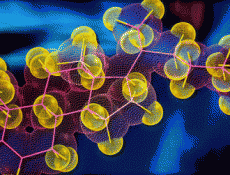Medical expert of the article
New publications
Chemicals created 100 years ago have rewarded modern man with stress
Last reviewed: 01.07.2025

All iLive content is medically reviewed or fact checked to ensure as much factual accuracy as possible.
We have strict sourcing guidelines and only link to reputable media sites, academic research institutions and, whenever possible, medically peer reviewed studies. Note that the numbers in parentheses ([1], [2], etc.) are clickable links to these studies.
If you feel that any of our content is inaccurate, out-of-date, or otherwise questionable, please select it and press Ctrl + Enter.

Modern humans' heightened sensitivity to stress may have been due to certain chemicals our grandparents were exposed to. Scientists have shown that the effects of chemicals can be transmitted via epigenetic mechanisms across three generations.
Researchers from the University of Texas and the University of Washington (both in the US) tested whether chemicals could affect the brain activity of animals across generations. To do this, they treated pregnant rats with vinclozolin, a fungicide commonly used in agriculture. It is worth noting that science is already aware of its effect on the hormonal system and its ability to influence the genes of offspring through parents. The same team of scientists previously showed how this fungicide can affect gene activity in subsequent generations through epigenetic mechanisms.
This time, after treating the rats with vinclozolin, the researchers waited for the third generation to come out, with which they conducted several behavioral experiments. In an article published in the journal PNAS, the scientists report that such animals were more sensitive to stress and demonstrated obsessive-anxious behavior. Accordingly, they had more active stress areas of the brain - compared to those individuals whose parents were not exposed to the chemical.
In other words, epigenetic changes caused by the fungicide can affect the neurophysiology of the body. In this sense, scientists have managed to link the molecular level with the physiological level, showing that the effect of the substance entails specific changes in physiology and behavior. The authors of the work point out that the current generation of people is the third since the time when the development of chemistry made a real revolution in the modern world. In this regard, they suggest thinking about why we are so stress-dependent. Yes, the world is becoming more complex and faster, the environment is deteriorating, etc. But is there not also a weakening of a person's own anti-stress barriers, and was this weakening not embedded in us three generations ago?
The same thing, according to scientists, may also take place in the case of various psychoneurological disorders, of which our time is so rich. Of course, the same autism has now been better diagnosed. But it is possible that the greatly increased frequency of this disease is connected with certain chemicals to which our grandparents were exposed - even before doctors and biologists learned to assess the harm from the latest achievements of applied chemistry.

